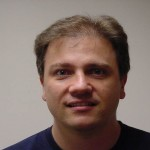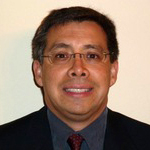
Master of Science in Applied Mathematics
Concentration in Dynamical Systems and Chaos
This concentration focuses on interdisciplinary applications of dynamical systems and nonlinear modeling in biology, chemistry, engineering, and physics. Students with interests in modeling and analyzing real life problems through mathematics will benefit from this concentration.
Preparation
Before entering the program, students must complete the following upper division courses, or equivalent. Students with inadequate undergraduate preparation may be accepted conditionally but will be required to complete courses for removal of the deficiency in the first year of study.
| All of the following |
|
| One of the following |
|


Required Courses (31 units)
The 31 units may include at most 12 units of approved 500-level mathematics courses and at most six units of independent research (Mathematics 797, 798, 799A, 799B). Elective courses from other departments may be approved by the adviser.
| All of the following |
|
| One of the following |
|
| One of the following |
|
| One of the following |
|
| 9 units of electives, possibly selected from the following |
|
Other requirements
Program of study.
The program of study,to include a plan for removal of any conditions on admission,
must be approved by the graduate adviser and will include at least 22 units in mathematics.
Thesis.
Students must select Plan A and complete Math 799A (Thesis). Students are advised
that a thesis normally takes a year to complete.
Degree Learning Outcomes
Listed below are the applicable Degree Learning Outcomes (DLOs) for this degree.
-
Comprehensive learning.
Students will gain fundamental learning and understanding of interdisciplinary
concepts and methods of dynamical systems and nonlinear modeling in various fields
that include: Biology, Chemistry, Engineering, and Physics. Students will develop
the necessary skills to model and analyze real-life problems through analytical and
computational mathematical methods at the frontier of applied mathematics and nonlinear
science.
Courses: Math 330, Math 337, Math 340, Math 524. -
Original research work.
Students will gain experience in conducting original research in dynamical systems,
including solving innovative problems that involve phenomena that changes in space
and/or time. It is expected for students to develop in-depth understanding of nonlinear
mathematical models and numerical methods to solve them.
Courses: Math 531, Math 537, Math 538, Math 636, Math 638.
Electives: Math 542, Math 623, Math 668, Math 693A, Math 693B, Math 797, Phys 580. -
Develop scholarly written communication skills.
Students will write well-organized technical reports in support of the original
research work conducted under the guidance of a thesis advisor. If possible, students
will translate those reports and thesis work into a formal manuscript for submission
to a peer-reviewed journal in the field of dynamical systems.
Courses: Math 780, Math 797. -
Formal presentations.
Students will report findings of the original research work through oral presentations
in seminars and through their formal thesis defense.
Courses: Math 780, Math 797, and Math 799A.